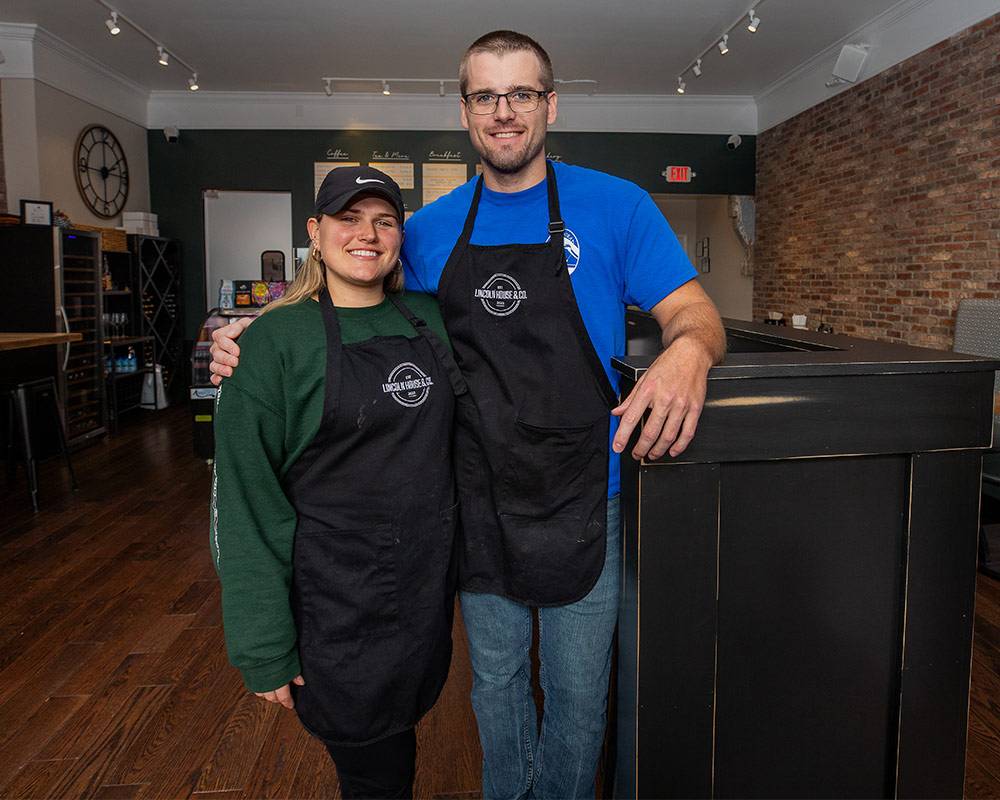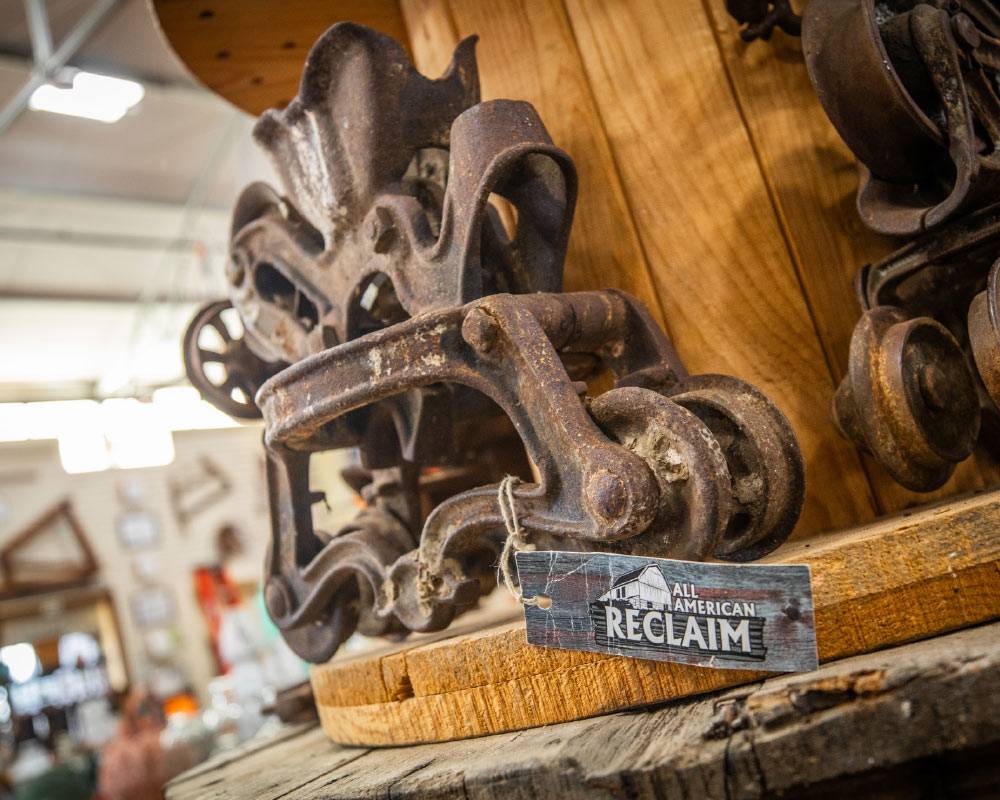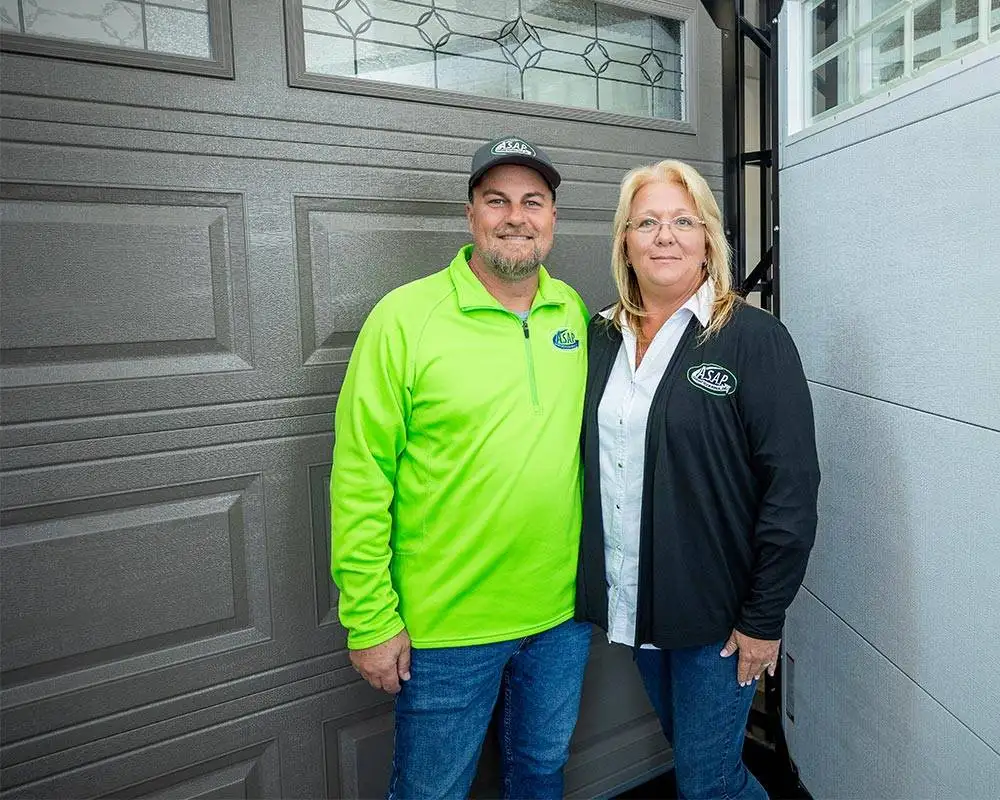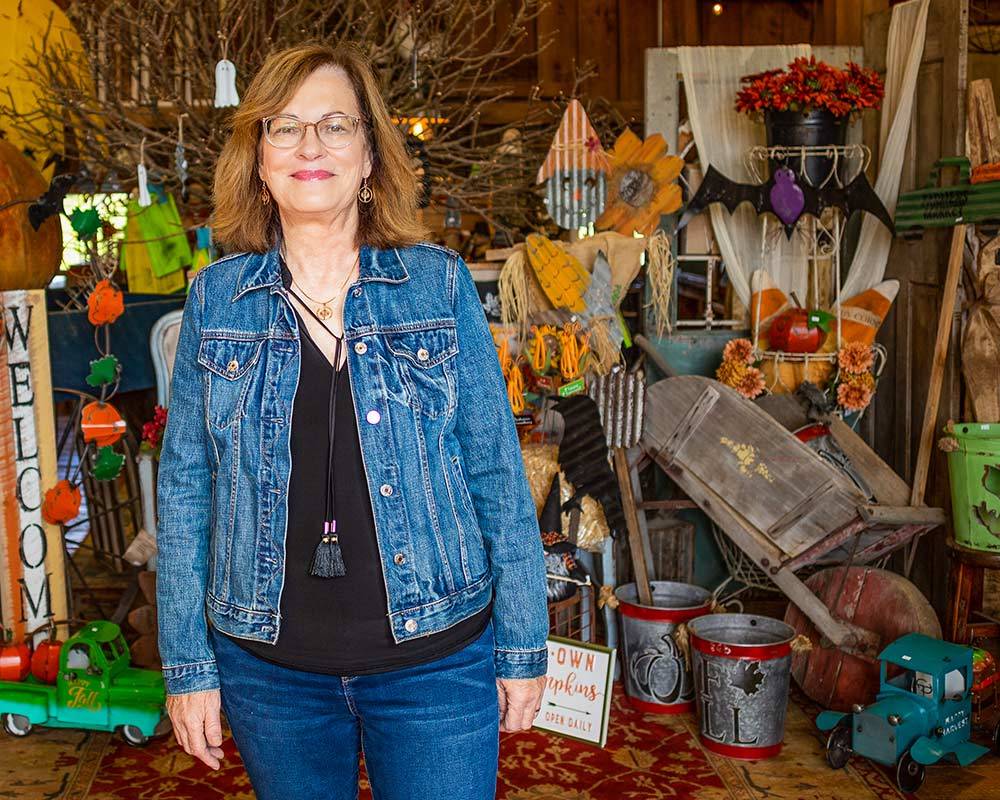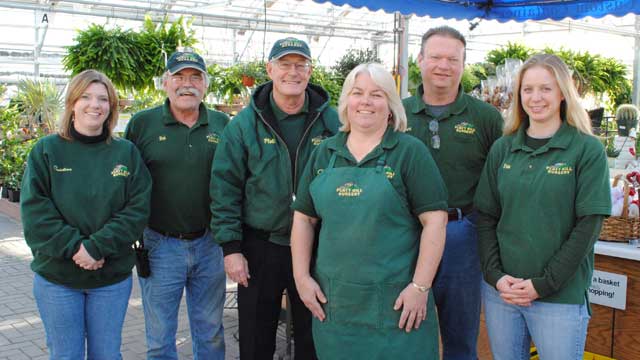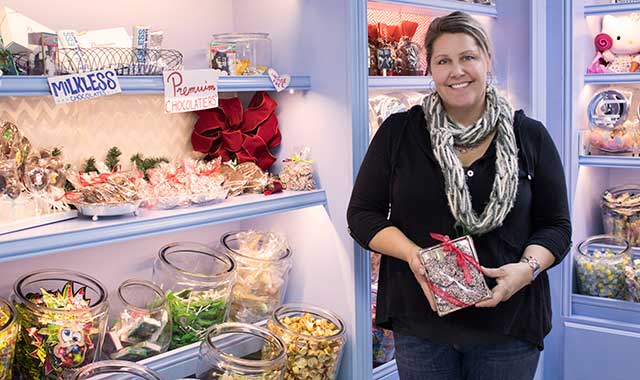Meet a fourth-generation grower who’s spent 30 years building a knowledgeable staff, pleasing loyal gardeners with quality plants. And to think he almost went to Wall Street …

Business and horticulture come pretty naturally to Platt Hill. His great-grandfather is the namesake for D. Hill Nursery, a former West Dundee landmark, where both his father and grandfather took their turns at the helm.
The fourth-generation grower didn’t take over the family nursery. Instead, he’s spent 30 years building his very own business, inspired by his name and the knowledge he’s gained from his family members and their long-time employees. On 15 acres at 2400 Randall Road, Carpentersville, and 6 acres at 222 W. Lake St., Bloomingdale, Platt Hill Nursery grows and sells plants, trees and shrubs, and offers home décor, garden supplies and garden art.
“When I went into retail, it was an eye-opener for me,” Hill says. “I love horticulture, and I love retailing, and I love putting the two together. That’s my passion.”
Inside the Carpentersville store, three cats roam freely, patrolling for mice or napping in the warm sunshine. Whimsical watering cans, shaped like gnomes, fish and pigs, fill the shelves, as do birdfeeders, seed packets and colorful displays.
Out in the large retail greenhouse and smaller growing houses, Hill produces much of what he sells. In the family tradition, he strives to produce dependable, high-quality products. Because his plants are accustomed to Illinois’ harsh climate, they’re often healthier and longer lasting than the big-box products, which tend to be shipped from the Southeast.
“If plants get shipped more than two climate zones north or south, there will be a difference,” Hill says. “That plant is already pushing hard, and now you put it on some shelves in a truck, where it’s cool and damp and dark. How would you like to be locked up in there for 48 hours? You wouldn’t be so happy if they did that to you. We grow our plants out back and put them on a golf cart to get them in the store.”
Hill improves his products by hiring a knowledgeable, highly trained nursery staff. Many of his year-round employees are Certified Nursery Professionals, a designation from the Illinois Green Industry Association that requires years of experience and an intensive education in plant identification, growing patterns and disease. He also takes pride in managing the pests that can damage plants before they’re purchased.
“If I spend $20 on a flat of flowers, the work that goes into planting that and making it last is so great that I don’t want to take a chance on planting something that has root rot,” Hill says. “I want something that’s going to grow. I’ve run into that so many times, where I go in to shop the competition, and I can see the plants are damaged. I can see that they’re sick. I can see that they’re hurt.”
Hill wants happy customers who find quality plants. Satisfied customers are likely to return.

“If the customer doesn’t feel good in some way, we’ve failed our jobs,” Hill says. “If she feels good, she’ll want to come back here. She will trust us. Our objective is to be her garden center of choice. If she wakes up on a Saturday morning and wants to do some gardening, I want this to be the first place she thinks of.”
Sometimes, that’s easier said than done, because the gardening industry can be as unpredictable as the weather. When gardening is out of season, Hill and his team find creative ways to bring customers in the door. They host seminars on topics like landscape design and birdfeeders. Hill also cuts back on part-time staff and encourages full-time staff to learn new skills.
“One advantage for big-box stores is that, in the wintertime, they can sell shovels and snow blowers, but we don’t,” he says. “The key is to have the staff either come with talents, or develop talents they can contribute to the business when customers aren’t ringing the register.”
His greenhouse manager developed a talent for using social media and now uses Facebook and YouTube to share gardening tips and special promotions. Other staff members repair equipment or lead gardening seminars. Hill is quick to credit his employees for their commitment to the operation.
“My name’s on the door and the jackets, but it would be nothing without them,” he says. “They’re the ones who make it work. I jump and shout for their successes, and I lament their failures and disappointments, in their personal lives.”
Throughout his career, Hill has continued to learn new things, sometimes the hard way. He admits to making his share of classic rookie errors, like buying a high-maintenance phone system he didn’t need.
“One of my favorite expressions is, ‘I’ve made mistakes in business that made my college education look cheap,’” Hill says. “We all have regrets, and you make some mistakes. You learn as you go along.”
If you would have asked Hill before 1974 whether he would continue the family business, he might have just laughed. Fresh out of school with an MBA in finance, Hill wanted to be a stockbroker, but economic times were tough.
“I went back to the family and said, ‘Well, I can’t get a job as a stock broker, but I know how to dig a ditch for a living, and I want to work. Can you get me a job?’ So they did.”
Hill started at entry-level pay, learning every facet of the nursery. When his family sold D. Hill in 1980, he bought the garden center and learned retailing from the company’s longtime managers. Three years later, Hill bought a second location, an old farm stand in Bloomingdale. By 1998, he had outgrown the West Dundee farm and moved to a spacious new facility in Carpentersville that allowed him to stretch his wings.
Today, Hill is looking toward the next generation, as son Clark, 25, follows in his father’s footsteps. Now in his second year at the business, Clark serves as landscape laborer and supervisor, while studying landscape design at the College of DuPage. Will he, or brother Graham, 26, someday assume the reins?
“Time will tell,” says the elder Hill. “My sons are young guys, and as young guys go, they have a lot of possibilities ahead of them. If they have the interest, I’d love for them to do it, but if they decide to do something else, I’d support them in that, too.” ❚













